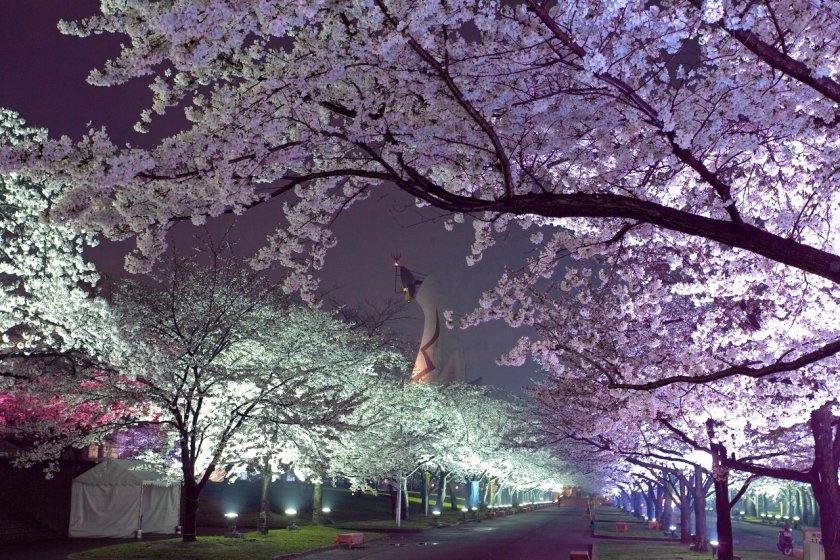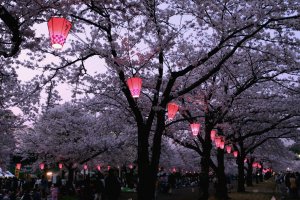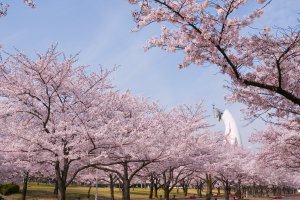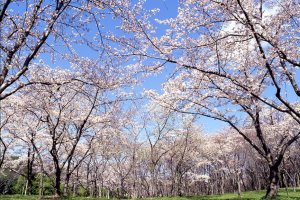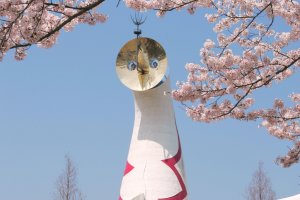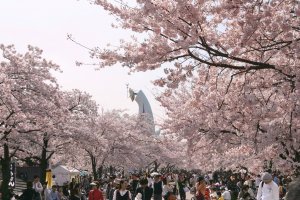Less than thirty minutes from central Osaka, built on the site of the Japan World Exposition in 1970, the Expo Commemoration Park is a sprawling 260 hectares of tranquil parkland, serene ponds and gardens full to bursting with vibrant flowers and blossom trees.
The natural beauty of the park is one of the main reasons that visitors descend upon its grounds. The Japanese garden is the epitome of Buddhist zen and offers the opportunity to walk along the stunning stream that flows within, taking you on a journey from the ancient Heian period (8-11th century) all the way to the present day, admiring the changing garden styles along the way. There are even stunning tea houses, Han-an and Banrian, to take in the sights and sounds of the garden whilst indulging in a bowl of matcha, though they are only open to public in spring and fall.
The lawns, gardens and ponds in the remainder of the park are a haven for wildlife. The plants, flowers and trees attract different types of birds throughout every season, whilst koi can be seen swimming happily, the footsteps of visitors peeking their interest enough to warrant closer inspection in case of an impromptu feeding session. The grounds are a delight to stroll through with something to see around every corner, a particular highlight is the Higashioji Street and the Sakura-no-nagare walk where over 500 cherry trees will bloom this spring. For a bird’s eye view of the park, head to the 300m long aerial promenade that offers wonderful views of the forest below.
Not only famous for its stunning parkland, the Expo Commemoration Park is also home to some of Japan’s most creative modern art installations by Japanese designers. The huge Tower of the Sun by Taro Okamoto greets you as you walk across the footbridge from the monorail station. The designer built the structure to simultaneously represent the past; represented by the mysterious Black Sun on the rear of the tower, the present; represented by the Face of the Sun jutting out of the body of the tower and the future; represented by The Golden Mask at the top of the tower. Not usually accessible to the public, the inside of the tower is scheduled to be open for viewing this year from March 19th.
Also in place in the park are six water fountains representing ‘dream for space’ produced by Japanese-American sculptor Isamu Noguchi, currently switched off but remaining as modern art sculptures in the Dream Pond, where you can hire cycle boats to circumnavigate these fantastic structures that are set for restoration back into working fountains in the coming year.
After perusing the natural and artistic sights on offer, enrich your cultural and historical knowledge at the Japan Folk Crafts Museum and the National Museum of Ethnology, perfect for visitors with small children for an educational break from the park’s excellent picnic and playground areas.
If you are in the area in spring, make sure to visit during the Cherry Blossom Festival held from March 28th to April 15th. With around 5,500 cherry blossom trees of 9 varieties, this festival is selected as one of "Japan's Top 100 Cherry Blossom Spots." The stunning view of the illuminated trees in the evening will also add to your cherry blossom experience in Japan.
Tickets for the Tower of the Sun opening can be purchased online in advance (Japanese only), however some slots should be available on weekdays for those without reservation.
Entrance to the park costs ¥250 and is open from 9:30am to 5pm (last entrance at 4:30pm, closed Wednesdays except from March 15–May 8). For more information on the park and its facilities, visit the official site.
